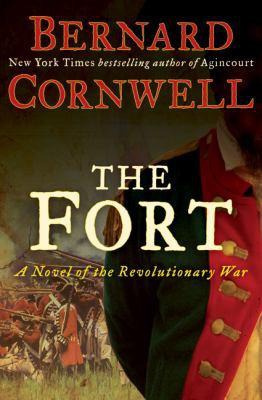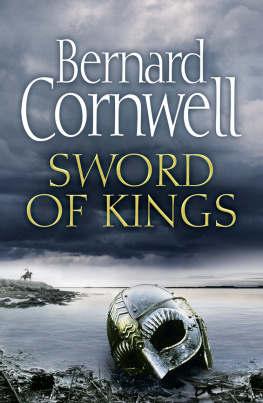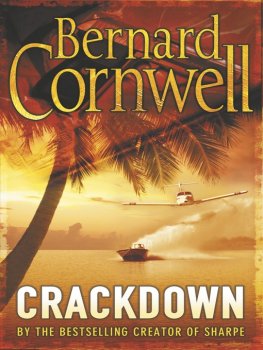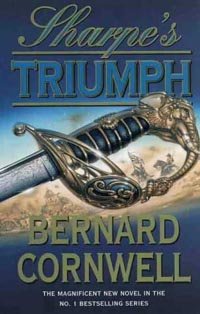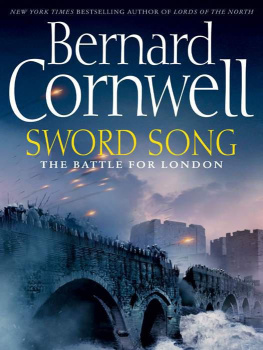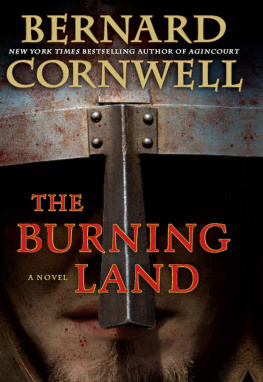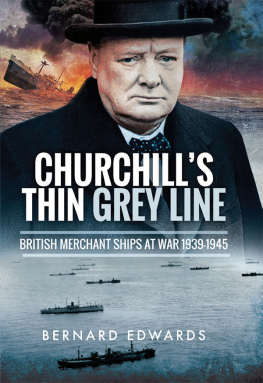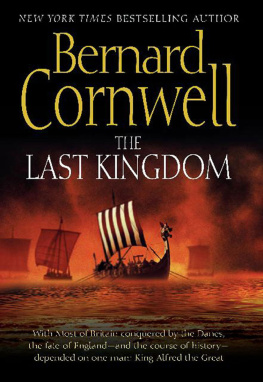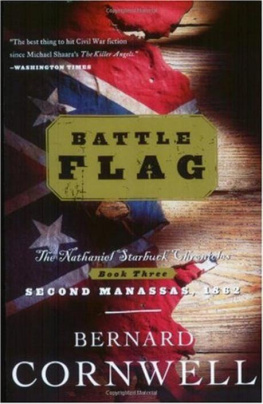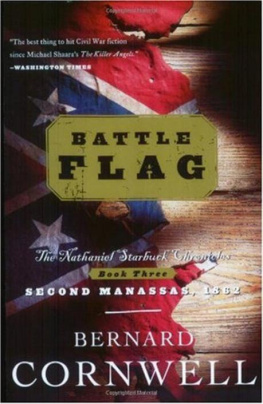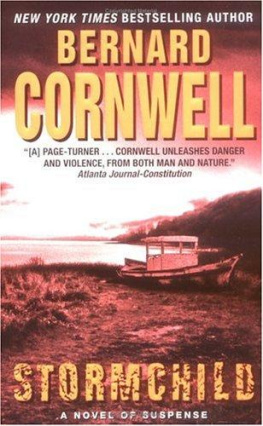THE FORT
is dedicated, with great admiration, to
Colonel John Wessmiller, US Army (Retired)
who would have known just what to do.
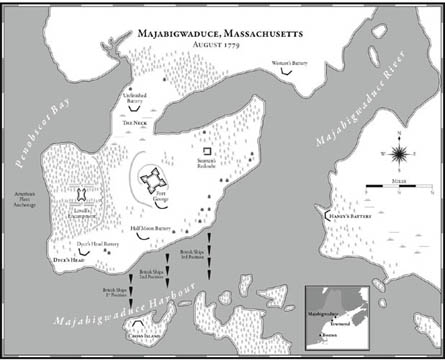
A voice in the darkness, a knock at the door,
And a word that shall echo for evermore!
For, borne on the night-wind of the Past,
Through all our history, to the last,
In the hour of darkness and peril and need,
The people will waken and listen to hear
The hurrying hoof-beats of that steed,
And the midnight message of Paul Revere.
From Henry Longfellows
The Midnight Ride of Paul Revere
Slowly and sadly we laid him down,
From the field of his fame fresh and gory;
We carved not a line, and we raised not a stone,
But we left him alone with his glory.
From Charles Wolfes
The Burial of Sir John Moore after Corunna
Contents
In 1779 there was no state of Maine, it was then the eastern province of Massachusetts. Some place names have also changed. Majabigwaduce is now called Castine, Townsend is Bucks Harbor, and Falmouth is Portland, Maine. Bucks plantation (properly Plantation Number One) is Bucksport, Orphan Island is Verona Island, Long Island (in the Penobscot River) is now Islesboro Island, Wasaumkeag Point is now Cape Jellison, and Cross Island is today called Nautilus Island.
The novel frequently refers to ships, sloops, brigs, and schooners. They are all, of course, ships in the same way that they are all boats, but properly a ship was a large, square-rigged, three-masted vessel like a frigate (think of the USS Constitution ) or a ship of the line (like HMS Victory ). Nowadays we think of a sloop as a single-masted sailboat, but in 1779 it denoted a three-masted vessel that was usually smaller than a ship and distinguished by having a flush main deck (thus no raised poop deck). Sloops, like ships, were square rigged (meaning they carried rectangular sails hung from crosswise yards). A brig, or brigantine, was also a large square-rigged sailing vessel, but with only two masts. Schooners, like brigs, carried two masts, but were rigged with fore and aft sails which, when hoisted, lie along the center line of the vessel rather than across it. There were variations, such as brig-sloops, but at Penobscot Bay, in 1779, there were only ships, sloops, brigs, and schooners. With the exception of the Felicity all the names of the boats are taken from history.
Most of the characters in the novel existed. The only fictional names are those of any character whose surname begins with F (with the exception of Captain Thomas Farnham, RN), and the names of British privates and noncommissioned officers (with the exception of Sergeant Lawrence, Royal Artillery).
Excerpt of letter from the Massachusetts Council, to Brigadier-General Solomon Lovell. July 2nd, 1779:
You will in all your operations consult with the Commander of the fleet that the Naval Force may cooperate with the troops under your command in Endeavoring to Captivate Kill or Destroy the whole force of the Enemy there both by sea & land. And as there is good reason to believe that some of the Principal men at Majorbagaduce requested the enemy to come there and take possession you will be peculiarly careful not to let any of them escape, but to secure them for their evil doings.... We now commend you to the Supream being Sincerely praying him to preserve you and the Forces under your Command in health and safety, & Return you Crowned with Victory and Laurels.
From a postscript to Doctor John Calefs Journal, 1780, concerning Majabigwaduce:
To this new country, the Loyalists resort with their families... and find asylum from the tyranny of Congress, and their taxgatherers... and there they continue in full hope, and pleasant expectation, that they may soon re-enjoy the liberties and privileges which would be best secured to them by the... British Constitution.
Letter from Captain Henry Mowat, Royal Navy, to Jonathan Buck, written aboard HMS Albany , Penobscot River, 15th June 1779:
Sir, Understanding that you are at the head of a Regiment of the Kings deluded Subjects on this River and parts adjacent and that you hold a Colonels Commission under the influence of a body of men termed the General Congress of the United States of America, it therefore becomes my duty to require you to appear without loss of time before General McLean and the commanding Officer of the Kings Ships now on board the Blonde off of Majorbigwaduce with a Muster Roll of the People under your direction.
There was not much wind so the ships headed sluggishly upriver. There were ten of them, five warships escorting five transports, and the flooding tide did more to carry them northwards than the fitful breeze. The rain had stopped, but the clouds were low, gray, and direful. Water dripped mono- tonously from sails and rigging.
There was little to see from the ships, though all their gunwales were crowded with men staring at the rivers banks that widened into a great inland lake. The hills about the lake were low and covered with trees, while the shoreline was intricate with creeks, headlands, wooded islands, and small, stony beaches. Here and there among the trees were cleared spaces where logs were piled or perhaps a wooden cabin stood beside a small cornfield. Smoke rose from those clearings and some men aboard the ships wondered if the distant fires were signals to warn the country of the fleets arrival. The only people they saw were a man and a boy fishing from a small open boat. The boy, who was named William Hutchings, waved excitedly at the ships, but his uncle spat. There come the devils, he said.
The devils were mostly silent. On board the largest warship, a 32-gun frigate named Blonde , a devil in a blue coat and an oilskin-covered cocked hat lowered his telescope. He frowned thoughtfully at the dark, silent woods past which his ship slid. To my mind, he said, it looks like Scotland.
Aye, it does, his companion, a red-coated devil, answered cautiously, a resemblance, certainly.
More wooded than Scotland, though?
A deal more wooded, the second man said.
But like the west coast of Scotland, wouldnt you say?
Not unlike, the second devil agreed. He was sixty-two years old, quite short, and had a shrewd, weathered face. It was a kindly face with small, bright blue eyes. He had been a soldier for over forty years and in that time had endured a score of hard-fought battles that had left him with a near-useless right arm, a slight limp, and a tolerant view of sinful mankind. His name was Francis McLean and he was a Brigadier-General, a Scotsman, commanding officer of His Majestys 82nd Regiment of Foot, Governor of Halifax, and now, at least according to the dictates of the King of England, the ruler of everything he surveyed from the Blonde s quarterdeck. He had been aboard the frigate for thirteen days, the time it had taken to sail from Halifax in Nova Scotia, and he felt a twinge of worry that the length of the voyage might prove unlucky. He wondered if it might have been better to have made it in fourteen days and surreptitiously touched the wood of the rail. A burnt wreck lay on the eastern shore. It had once been a substantial ship capable of crossing an ocean, but now it was a rib cage of charred wood half inundated by the flooding tide that carried the Blonde upriver. So how far are we now from the open sea? he asked the blue-uniformed captain of the Blonde .
Twenty-six nautical miles, Captain Andrew Barkley answered briskly, and there, he pointed over the starboard bow and past the lion-crested cathead from which one of the frigates anchors was suspended, is your new home.
McLean borrowed the captains glass and, using his awkward right arm as a rest for the tubes, trained the telescope forrard. For a moment the small motions of the ship defeated him so that all he glimpsed was a blur of gray clouds, dark land and sullen water, but he steadied himself to see that the Penobscot River widened to make the great lake that Captain Barkley called Penobscot Bay. The bay, McLean thought, was really a great sea loch, which he knew from his study of Barkleys charts was some eight miles from east to west and three miles from north to south. A harbor opened from the bays eastern shore. The mouth of the harbor was edged by rocks, while on its northern side was a hill crowned thick with trees. A settlement stood on the southern slope of that hill; over a score of wooden homes and barns were set among patches of corn, plots of vegetables, and piles of timber. A handful of fishing boats was anchored in the harbor, along with one small brig that McLean assumed was a trading vessel. So thats Majabigwaduce, he said softly.
Next page
